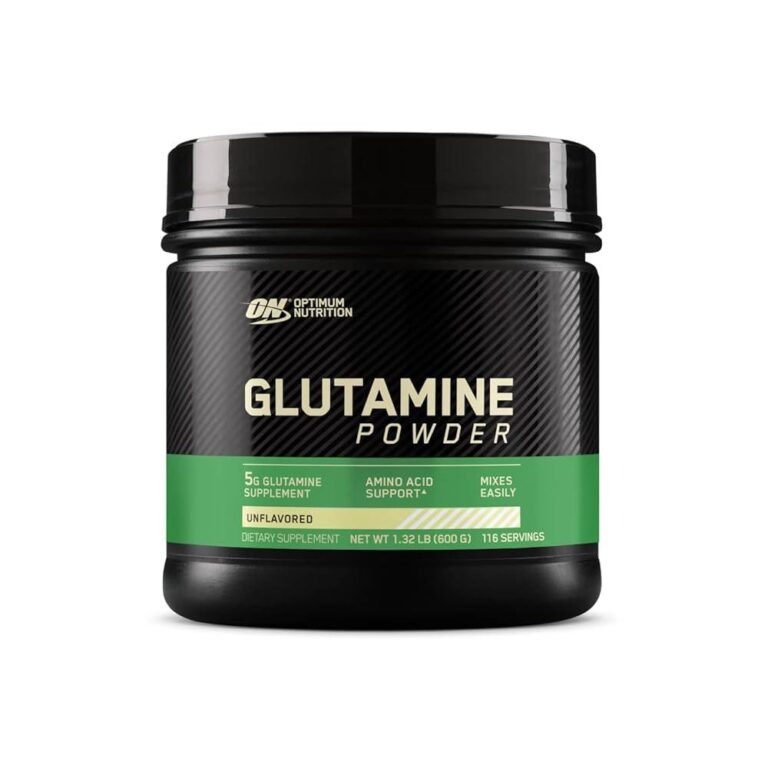When it comes to muscle recovery, athletes and fitness enthusiasts are always on the lookout for effective ways to bounce back faster and reduce downtime between workouts. One supplement that has gained considerable attention in this area is L-glutamine. As an amino acid naturally found in the body, L-glutamine plays a vital role in muscle repair and immune function. In this article, we’ll explore the key benefits of L-glutamine for faster muscle recovery and what the science says about its potential to support your fitness goals.
Table of Contents
- L-Glutamine and Muscle Repair Mechanisms
- Enhancing Recovery Time Through Supplementation
- Optimal Dosage and Timing for maximum Benefits
- Incorporating L-glutamine into Your post-Workout Routine
- Wrapping Up
L-Glutamine and Muscle Repair Mechanisms
L-Glutamine acts as a critical player in the intricate process of muscle repair by serving as a primary fuel source for muscle cells and supporting the synthesis of proteins necessary for recovery. When muscles sustain micro-tears during intense workouts, glutamine accelerates the healing process by replenishing depleted amino acid levels that are vital for tissue repair. Additionally, it aids in reducing muscle soreness and inflammation, allowing for a more comfortable recovery period.This amino acid’s unique role in maintaining the body’s nitrogen balance further ensures that muscle tissues have an optimal surroundings for rebuilding and strengthening.
Beyond its direct influence on muscle tissue, L-Glutamine enhances recovery through its impact on the immune system. Intense exercise temporarily weakens immunity, increasing susceptibility to infections and prolonging recovery times. Glutamine supports immune cell function, helping to ward off illness and maintain overall wellness during physically stressful periods. Key mechanisms involved include:
- Promoting protein synthesis: essential for repairing damaged muscle fibers.
- Supporting cellular hydration: improves muscle cell volume for optimal repair conditions.
- Regulating inflammatory responses: balancing inflammation to prevent chronic damage.
These combined actions underscore why glutamine is essential for athletes and fitness enthusiasts aiming to improve recovery efficiency and muscle resilience.
Enhancing Recovery Time Through Supplementation
Incorporating targeted supplements can dramatically influence how quickly your muscles recover after intense workouts. L-Glutamine, an amino acid naturally produced in the body, plays a pivotal role in muscle repair by replenishing depleted stores. This helps reduce muscle soreness and fatigue, allowing you to train more frequently without feeling constantly worn out. Supplementation with L-Glutamine supports the immune system and gut health, which are critical for efficient nutrient absorption and overall recovery processes.
Athletes and fitness enthusiasts often benefit from:
- Faster reduction of exercise-induced muscle damage
- Improved hydration and prevention of muscle cramps
- Enhanced glycogen synthesis for energy restoration
- Reduced inflammation, contributing to less downtime
Embracing a consistent L-Glutamine routine can lead to noticeable improvements in recovery times, making it an effective adjunct to post-workout nutrition strategies.
Optimal Dosage and Timing for Maximum Benefits
Finding the ideal amount and timing for L-Glutamine supplementation can significantly enhance its effectiveness in promoting muscle recovery. Generally,a dose of 5 to 10 grams per day is recommended for most individuals engaged in regular intense training. It’s best to divide the dosage throughout the day—taking smaller amounts pre- and post-workout ensures a steady supply of this vital amino acid when your muscles need it most.For those involved in notably strenuous or prolonged exercise, slightly higher doses might potentially be beneficial but should be approached cautiously to avoid unnecessary strain on the digestive system.
Timing plays a critical role in optimizing the benefits of L-Glutamine. Consider these strategic moments for intake:
- Pre-workout: Helps prime your muscles by supporting immune function and reducing protein breakdown.
- Instantly post-workout: aids in speedy muscle repair and glycogen replenishment.
- Before bedtime: Supports overnight muscle recovery and growth during the body’s natural repair cycles.
By syncing your L-Glutamine intake with these key windows, you can maximize its potential to speed up recovery and reduce muscle soreness, helping you bounce back faster and train harder for optimal results.
Incorporating L-Glutamine into Your Post-Workout Routine
to maximize the benefits of L-Glutamine,timing and consistency play crucial roles. Incorporate a 5-10 gram dosage immediately after your workout to replenish depleted glutamine levels and jumpstart muscle repair. This practice takes advantage of the post-exercise anabolic window when your muscles are most receptive to nutrients. Combining L-Glutamine with a balanced protein shake or a carbohydrate source can further enhance absorption and recovery.
For individuals engaged in intense training or prolonged physical activity, consider integrating L-Glutamine supplements into your daily regimen beyond post-workout consumption. A few helpful tips include:
- Taking smaller doses throughout the day to maintain elevated plasma levels
- Pairing glutamine with hydration to support cellular recovery
- Consulting with a healthcare professional to tailor intake based on your specific fitness goals
Wrapping Up
Incorporating L-Glutamine into your post-workout routine can offer meaningful support for muscle recovery, helping to reduce soreness and promote faster healing.While it’s not a magic solution,its benefits in replenishing amino acid levels and supporting immune function make it a valuable addition for many athletes and fitness enthusiasts. As always, it’s best to consult with a healthcare professional before starting any new supplement regimen to ensure it fits your individual needs. With the right approach, L-Glutamine can be a helpful tool on your journey to stronger, healthier muscles.

